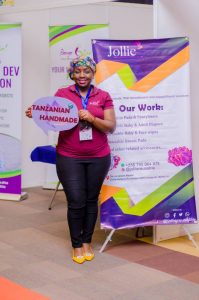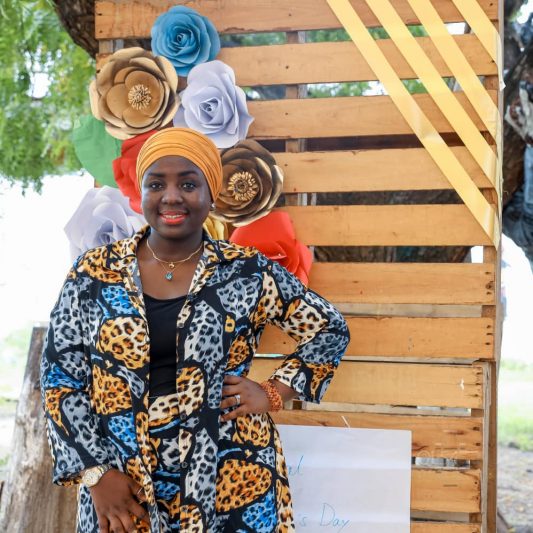By the time I turned 30, my job in procurement started to feel repetitive. I had reached my make or break point and couldn’t see how I was adding value to the lives of people around me, until a work trip to Monduli made me change course. On this trip, I met a young Maasai girl who was clearly struggling with something. She was hesitant and shy to open up at first. Once she got comfortable with me she explained that it was ‘the’ time of the month and she couldn’t attend school because she did not have pads or a cloth to wear. Periods had affected my childhood too, so I felt an instant connection. My periods have always been very painful because of a disorder in my uterus called endometriosis. I always had to work twice as hard in school to make up for the days I missed.
Unlike the girl I met, I was lucky to grow up in a middle-income family with very hard-working parents, who raised us as god-fearing children and would always make sure that there were menstrual pads for me and my 6 sisters. I was shocked and sad to see that something so basic to me was not accessible for everyone. Born in Kilimanjaro, Tanzania, I got the opportunity to venture into the wide world from as young as seven years old. I went to primary school in Kenya, secondary school in Uganda and left the continent to go to University in Malaysia. Seeing the struggle of this girl made me aware that I am privileged and need to give back.
In the weeks after, my thoughts constantly wandered off to this conversation in Monduli. I thought this was an isolated case, but when I started reading, I found out that 1 in 10 girls miss school for 3-5 days during their menstrual cycle in my very own country. That is 36-60 days in a year, just because they don’t have menstrual hygiene products. I decided to be the change I wanted to see. Sergey Brin, the co-founder of Google once said: ‘’The only way you are going to have success is to have lots of failures first’’. My earlier ventures must not have done so well for a reason. After owning an internet café, being a farmer and running taxi services, now I finally got my calling: I started a social enterprise ‘Jollie Reusable Pads and Accessories’.

At Jollie, we don’t just manufacture reusable pads but we also work hard to make Menstrual Hygiene part of daily conversations for girls, women and men in Tanzania. As part of our upbringing, we are not used to speaking about our periods and get little information about it. Because of that, girls are often subjected to stigma and discrimination. Many girls simply don’t understand what is happening to their bodies when they get their periods for the first time and may think they are dying. If we want to end stigma, it is absolutely key that we involve boys in period conversations and that we as parents take our responsibility to educate our sons. We need to change people’s mentality by speaking about it openly and embrace that this is womanhood. In any case, who is a woman without her period?
Womanhood is a beautiful thing, but often very different from what you read in magazines. Carrying my twins to term was a very challenging experience and I am immensely proud that I did it. Raising them is not as easy as it is often made to look like either. Likewise, periods are not as rosy as those smiley women in standard menstrual hygiene promotions make us think. They are an unpleasant and sometimes painful, but necessary and above all a very normal part of being a woman. I want my daughter and all other girls in Tanzania to be able to speak about this, feel accepted and empowered to go to school even during those days of the months.
I keep pursuing my dreams, breaking barriers and forging my way forward to end period poverty. I dream and keep pushing for a future where Tanzania has a policy in place for handling Menstrual Hygiene Management issues and we are one step closer to true gender equality.


